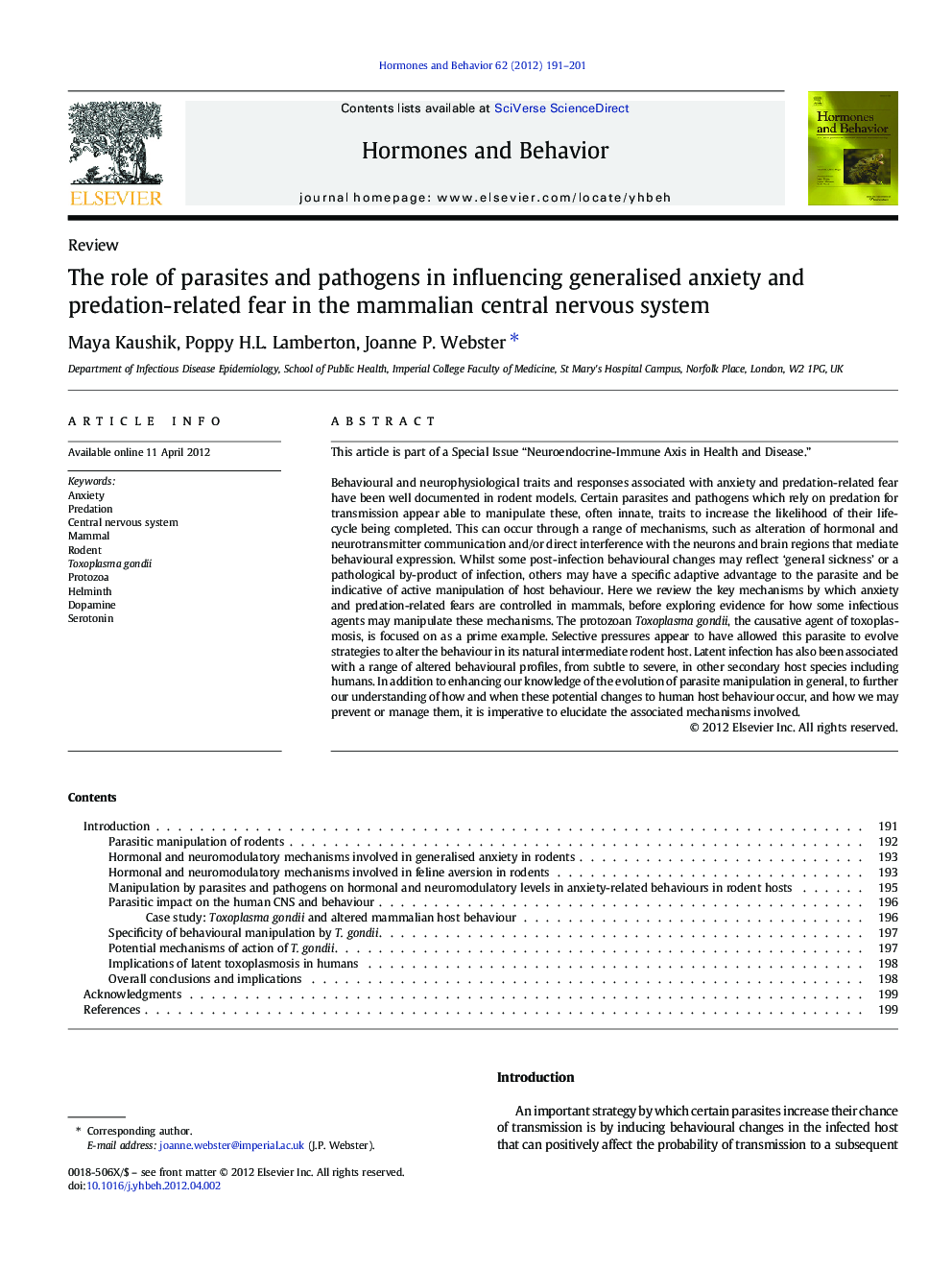| کد مقاله | کد نشریه | سال انتشار | مقاله انگلیسی | نسخه تمام متن |
|---|---|---|---|---|
| 323094 | 540502 | 2012 | 11 صفحه PDF | دانلود رایگان |

This article is part of a Special Issue “Neuroendocrine-Immune Axis in Health and Disease.”Behavioural and neurophysiological traits and responses associated with anxiety and predation-related fear have been well documented in rodent models. Certain parasites and pathogens which rely on predation for transmission appear able to manipulate these, often innate, traits to increase the likelihood of their life-cycle being completed. This can occur through a range of mechanisms, such as alteration of hormonal and neurotransmitter communication and/or direct interference with the neurons and brain regions that mediate behavioural expression. Whilst some post-infection behavioural changes may reflect ‘general sickness’ or a pathological by-product of infection, others may have a specific adaptive advantage to the parasite and be indicative of active manipulation of host behaviour. Here we review the key mechanisms by which anxiety and predation-related fears are controlled in mammals, before exploring evidence for how some infectious agents may manipulate these mechanisms. The protozoan Toxoplasma gondii, the causative agent of toxoplasmosis, is focused on as a prime example. Selective pressures appear to have allowed this parasite to evolve strategies to alter the behaviour in its natural intermediate rodent host. Latent infection has also been associated with a range of altered behavioural profiles, from subtle to severe, in other secondary host species including humans. In addition to enhancing our knowledge of the evolution of parasite manipulation in general, to further our understanding of how and when these potential changes to human host behaviour occur, and how we may prevent or manage them, it is imperative to elucidate the associated mechanisms involved.
► Parasites can manipulate the behaviour of their mammalian hosts.
► Manipulatory parasites may be neurotropic or enteric.
► Behavioural alterations may have a specific selective advantage to the parasite.
► Behavioural alterations may be due to general non-specific pathology.
► Toxoplasma gondii is a protozoan that specifically alters behaviour in rats.
Journal: Hormones and Behavior - Volume 62, Issue 3, August 2012, Pages 191–201